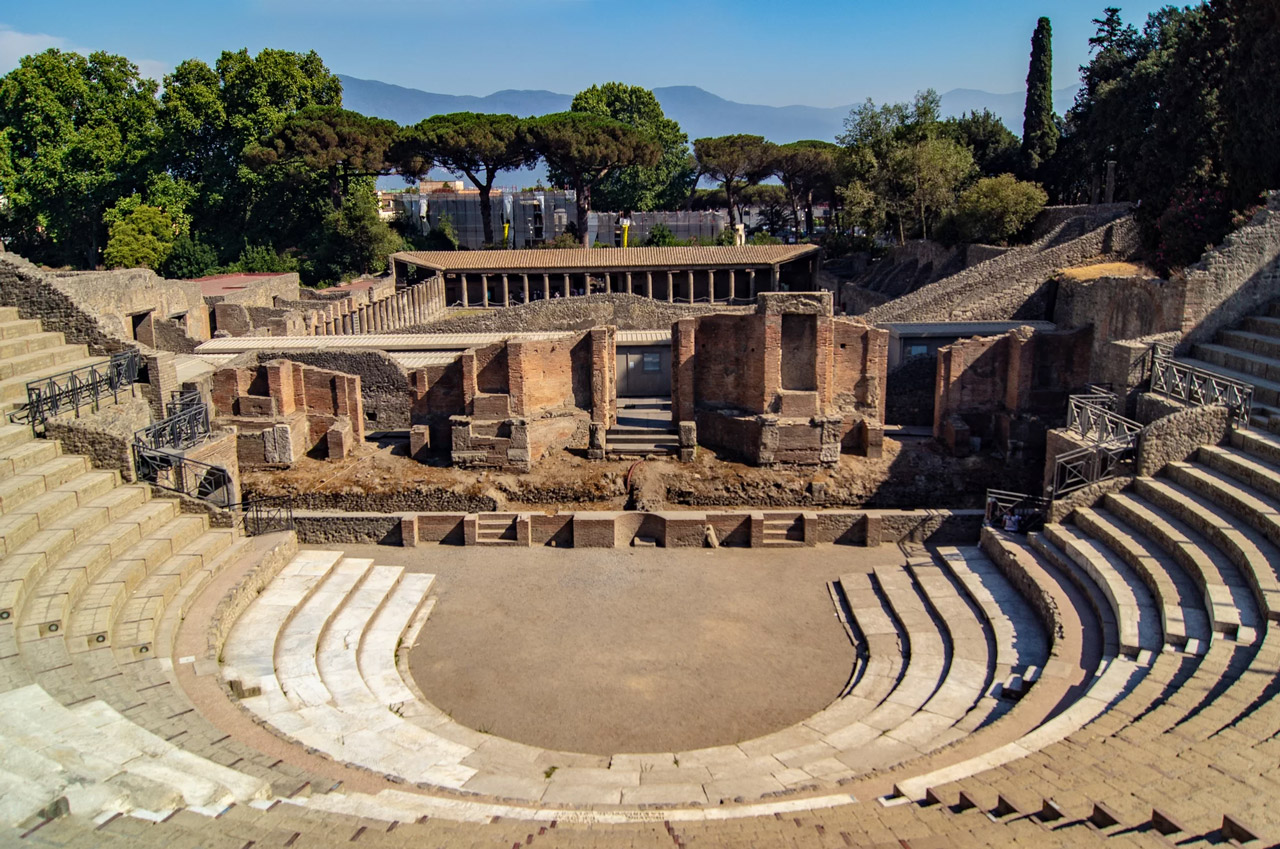© Zani-Casadio
Friday 7 July – Ravenna, Palazzo Mauro De André, 9 pm
Sunday 9 July – Jerash (Jordan), Roman South Theatre, 8.30 pm
Tuesday 11 July – Pompeii, Teatro Grande, 9.30 pm
A bridge of brotherhood through art and culture
The Roads of Friendship: Ravenna – Jerash – Pompei
conductor
Riccardo Muti
Orchestra Giovanile Luigi Cherubini
and musicians of the National Music Conservatory of Amman
Coro Cremona Antiqua
Antonio Greco choirmaster
Monica Conesa soprano
Filippo Mineccia countertenor
Zain Awad, Ady Naber, Mirna Kassis, Razek-François Bitar singing
Christoph Willibald Gluck
II Act from Orfeo ed Euridice
harpsichord Davide Cavalli
Vincenzo Bellini
from Norma
“Casta diva, che inargenti”
Dima Orsho
Ula-ikal Mansiyouna ala difaf al furat
(Those Forgotten on the Banks of the Euphrates River)
set to an ancient Syrian poem that was handed down orally in the regione of Jazeera, between Tigris and Euphrates
singers Mirna Kassis and Razek-François Bitar
oud Saleh Katbeh
percussions Elias Aboud
Assi Rahabani e Mansour Rahabani
Ehkeeli Aan Baladi (Tell Me about My Country)
singer Zain Awad
oud Saleh Katbeh
percussions Elias Aboud
Lamma Bada Yatathanna (She Appeared Swaying)
traditional Muwashah
singer Ady Naber
oud Saleh Katbeh
percussions Elias Aboud
Johannes Brahms
Das Schicksalslied (The Song of Destiny) for choir and orchestra, Op. 54
in collaboration with

“Suffering humans / decline and blindly fall […] like water thrown / from cliff to cliff / down into the Unknown”: a meditation on human destiny, the relationship with the divine and the mystery of death. In Brahms’s Song of Destiny, set to a poem by Hölderlin, the unsolvable doubt becomes music once again, and it is the same mysterious doubt that Orpheus tries to resolve in Gluck’s extraordinary opera, defying the Furies and crossing the boundary between life and death to bring back his beloved Eurydice from the underworld. The same doubt, like a thrill, pervades Norma’s prayer for peace to the goddess of the moon in Bellini’s well-known opera. Under Riccardo Muti’s baton, a possible answer emerges in the ecstatic light that concludes Brahms’s song, like a message of redemption and hope.
So many years have passed since the first adventurous journey that marked the beginning of the Paths of Friendship project: it was 1997, the sound of bombs still in our ears, the rubble in our eyes, when music was called from the smouldering ruins of Sarajevo to offer new hope for the future. Since then, the Ravenna Festival has never stopped building bridges of brotherhood to heal the wounds of hatred and terror, of incomprehension and mistrust, but also to find our roots in the ancient stones and in the eyes of others. Similarly, this year a new journey will wind its way from Ravenna to Jerash to pay tribute to the extraordinary generosity with which the Jordanian people have welcomed refugees fleeing the war in neighbouring Syria for years. Music will resound in a city that has remained “invisible” for ages, buried in the sand since a devastating earthquake destroyed it in the 8th century, and which, thanks to the passion of indomitable archaeologists, has finally been brought back to life in the imposing remains of its original Roman layout. Just like Pompeii, also “invisible” for more than a millennium, hidden from the world by the ashes of the volcano, and rediscovered in the name of archaeology and of a past that has re-emerged with new force as a living memory that becomes the future. And once again, from the ancient Byzantine capital washed by the waters, Riccardo Muti’s baton will lead Italian and Jordanian musicians, united in a plea for peace and brotherhood through the universal language of sound.



